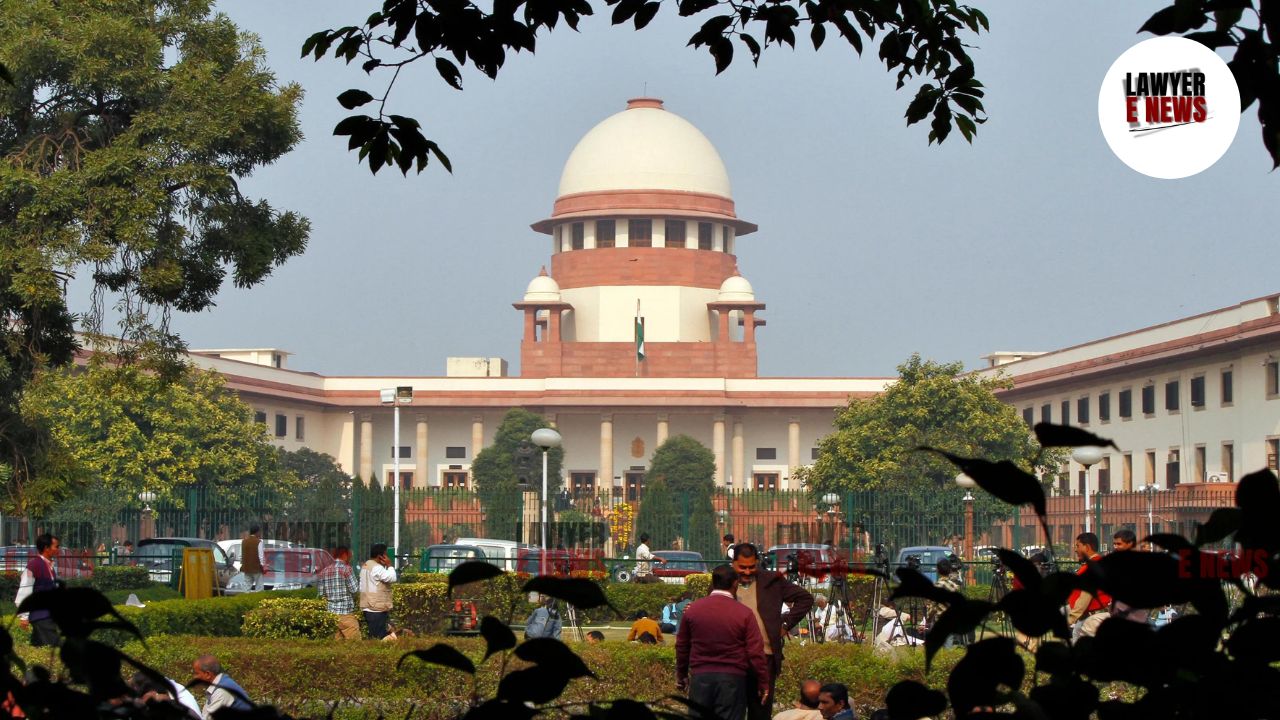-
by Admin
15 February 2026 5:35 AM



Supreme Court of India quashed criminal proceedings against the appellants—former in-laws of the complainant—under Sections 498-A, 323, 504, 506, and 354 of the Indian Penal Code, 1860, as well as under Sections 3 and 4 of the Dowry Prohibition Act, 1961. The Court invoked its extraordinary power under Article 142 of the Constitution to quash the FIR and subsequent proceedings, considering that the complainant has remarried and relocated abroad, making the continuation of the case both unnecessary and burdensome for the appellants.
The case originated from a complaint filed on April 30, 2015, by the complainant, the former wife of the appellants' brother, alleging harassment and cruelty under Section 498-A and other IPC provisions. This complaint was initially settled through a Panchayat agreement on May 2, 2015, leading to its closure. However, within a few months, the complainant filed another complaint, resulting in the registration of an FIR on September 28, 2015, and subsequent filing of a charge-sheet against the appellants on March 20, 2016.
Key developments in the case included:
Divorce: The complainant obtained a divorce decree from her former husband on November 9, 2017, which went uncontested.
Remarriage and Relocation: The complainant remarried on January 5, 2018, and relocated to Austria with her new husband. The appellants, meanwhile, had settled in the United Kingdom.
The appellants, who are the complainant's former brother-in-law and his wife, sought to quash the proceedings under Section 482 of the Code of Criminal Procedure, arguing that continuing the case served no purpose since the complainant had moved on with her life.
The primary issue was whether criminal proceedings against former in-laws should continue after a divorce and subsequent remarriage of the complainant. The appellants argued that the complainant's relocation abroad and remarriage rendered the continuation of the criminal case redundant and oppressive.
The Supreme Court examined whether it could invoke its extraordinary powers under Article 142 to quash the FIR and subsequent proceedings, despite the High Court’s decision to dismiss the appellants' petition for quashing under Section 482 CrPC.
The Court observed that the complainant initially filed a complaint in April 2015, which was settled amicably within a week through a Panchayat meeting. However, she subsequently filed a new complaint in September 2015, despite the settlement. This pattern, the Court noted, raised questions about the necessity and validity of the subsequent complaint.
"There was no cause for the second respondent-complainant to have filed another complaint when the earlier complaint... ended in a closure report on account of an amicable settlement," the Court remarked.
Impact of Divorce and Remarriage on Criminal Proceedings
The Court took into account the complainant’s divorce in 2017 and remarriage in 2018. Noting that she was now residing in Austria with her new husband, the Court concluded that the complainant had moved on with her life and that continuing the proceedings would serve no meaningful purpose.
The Court cited its own judgments in Ramawatar v. State of Madhya Pradesh (2022) and Arun Jain v. State of NCT of Delhi (2024) to underscore the view that post-divorce criminal proceedings, especially in cases of dowry harassment, may be quashed if both parties have remarried and moved on with their lives.
"The continuation of the criminal proceedings... would only be a reliving of the hardship and suffering that she may have experienced in relation to her earlier marriage," the Court noted.
In light of the peculiar circumstances, the Court decided to invoke Article 142 to quash the FIR and subsequent proceedings, emphasizing that its decision was aimed at achieving "complete justice." The Court highlighted that both the complainant and appellants were now settled abroad, and allowing the trial to continue would impose an unnecessary burden on the parties.
"The interest of justice would be subserved if these proceedings are put to an end... permitting the criminal proceedings to be continued would not subserve the interest of justice either from the point of view of the second respondent or from the point of view of the appellants."
The Supreme Court allowed the appeal and quashed the FIR dated September 28, 2015, the charge-sheet dated March 20, 2016, and all subsequent proceedings against the appellants. However, it clarified that the criminal case against the complainant’s former husband would continue independently, without any opinion expressed on its merits.
This judgment reiterates the Supreme Court's position on the importance of quashing matrimonial disputes post-divorce, particularly when both parties have remarried and moved on with their lives. By invoking Article 142, the Court emphasized the need to prevent unnecessary legal harassment in situations where the continuation of proceedings would serve no constructive purpose.
Date of Decision: October 1, 2024
Kuldeep Singh & Anr. v. State of Uttar Pradesh & Anr.
